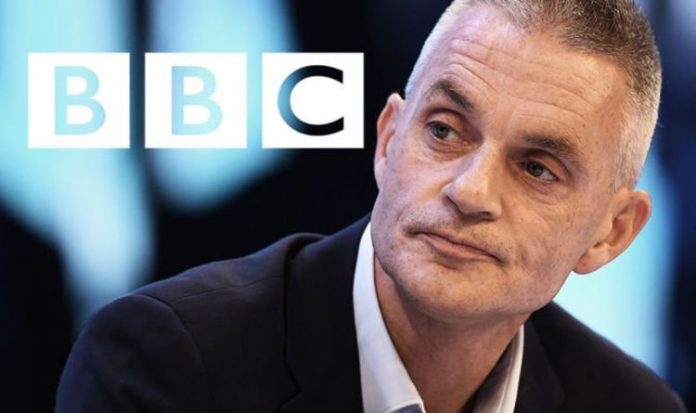Mr Davie started the job as the BBC’s new Director-General earlier this month after Tony Hall announced he would stand down in January. He has already made his presence felt within the corporation, having announced several changes the broadcaster will assume in order to modernise. One huge change will come in the way BBC presenters, or “talent” as they are regularly described, operate outside their workplace.
Those who use their status to secure lucrative external work will be forced to declare outside interests.
A database of all BBC employees’ outside commitments is to be set up, and made available to licence-fee payers to scrutinise how much presenters made from corporate sidelines and speaking engagements.
Mr Davie previously served as the BBC’s acting Director-General following George Entwistle’s shock resignation in 2012.
Just days into his new acting role, Mr Davie came under fire when he appeared to walk out of a live grilling on Sky News.
It came as he was quizzed by presenter Dermot Murnaghan.
After insisting that the questions should be put to departed DG George Entwistle, he glanced off camera and said: “Anyway, I will go now because I’ve got a lot to do…
“I’ve got a job and I’m going to get on with it, thank you Dermot.”
In the interview, the reflection of a figure can be seen in the glass window behind Mr Davie.
JUST IN: BBC’s Tim Davie admits scrapping over-75s licences ‘not good look’
To find out details of coronavirus in your area, please fill in your postcode below.
“The interview overran, clashing with others,” said a press office tweet.
Mr Davie has since risen through the ranks to secure the job as a full-time role.
He has admitted the BBC’s future faces a “significant risk” and has “no alienable right to exist”.
During a speech earlier this month in Cardiff, he said: “If current trends continue, we will not feel indispensable enough to all our audience. We must evolve to protect what we cherish.”
Despite mounting pressure, he has dismissed any notion of turning the BBC into a Netflix-style subscription service.
He argued that such a change in operation “would make us just another media company” that serves only “the few”.
He said: “We could make a decent business out of it, and I suspect it could do quite well in certain postcodes, but it would make us just another media company serving a specific group.
“We all recognise when someone says, ‘I would pay my licence fee for Radio 4, for Strictly, or for the website’.
“But this kind of connection is under pressure and cannot be taken for granted.
“Across the UK, across all political views, across all of society, and across all age groups, people must feel their BBC is here for them, not for us.”
The licence fee has been a recurring struggle for the BBC to defend.
Several times the Government has threatened to scrap the fee.
Earlier this year, ministers suggested the Royal Charter that protects the licence fee until 2027, could be scrapped when its review approaches.
It also said it was consulting on plans to decriminalise non-payment of the licence fee from 2022.







